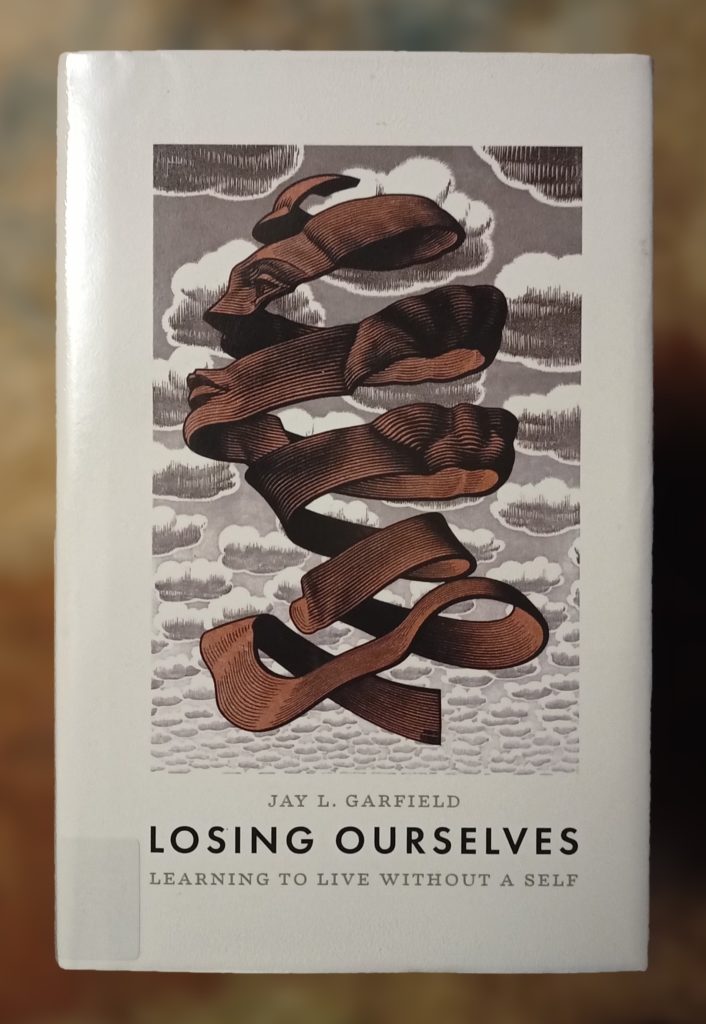
This is an exploration of the Buddhist concept of no-self: we don’t exist as a distinct self with an unchanging identity. Instead, we are just the sum of the various thoughts, feelings, emotions and so on that are associated with our body. In other words, there are thoughts, but there is nothing separate that thinks the thoughts.
The book does overreach a bit in some parts. For example, Garfield claims to be able to explain the thorny problem of other minds: I know I think, but how do I know that other people think too? They could all be automatons, or figments of my imagination. But his “solution” conflates minds with selves – and since he already claims that there are no selves, then the problem of other minds disappears. Of course this doesn’t solve anything – I still don’t know whether other thoughts exist other than “mine” (the ones I have direct experience of).
Still, this is a good book, which explains the idea well. I have also read Robert Wright’s similar book Why Buddhism is True (with its associated Philosophy Bites podcast), but I am still awaiting a good synthesis of Buddhist concepts with other areas and questions in the philosophy of mind.